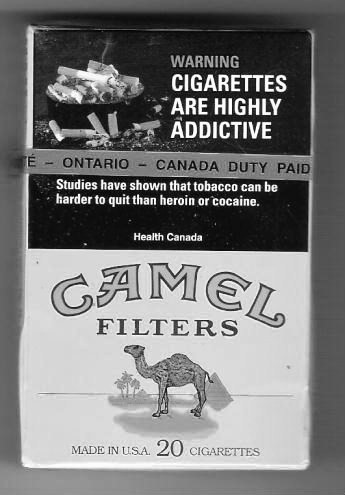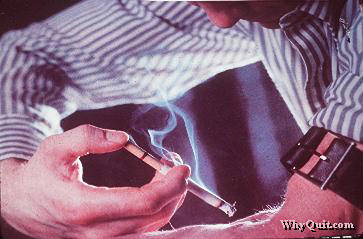Why? Because the vast majority who successfully arrest their chemical dependence upon nicotine do so by going cold turkey. [1]
Still, none of us were born knowing how to count, read, write or drive a car. Why should nicotine dependency recovery be any different?
Smart Turkey is about quickly learning key nicotine cessation insights.
The goal of "Big Nic" (the nicotine addiction industry) is to keep you hooked, buying and using until the day you die. Less than an hour's read, Smart Turkey’s goal is to assist you in rapidly becoming smarter and wiser than nicotine’s grip upon your mind and life.
So as to avoid distraction, I recommend that you not click on any link the first time you read this guide. If you have concerns during your journey home, use the links and references as a gateway to developing a deeper understanding.
Knowledge is power. Why fight in darkness? Turn on the lights. Arm yourself.
Why so hard?
Why does ending use “seem” so hard? Like alcoholism or being addicted to heroin or meth, nicotine addiction is REAL drug addiction.[2]

Repeated use took our brain’s survival instincts hostage. Our dopamine pathways — our mind's priorities teacher — started seeing nicotine as if food and ending its use as starvation.
Urges and cravings for nicotine, urges and cravings for food, who in their right mind wants to starve? It’s why, historically, half of adult smokers have smoked themselves to death.
The good news is that while hooked and using, we’re not in our right mind. Nicotine addiction is about living a lie. The truth is, without food we die. Without nicotine we detox, awaken, recover and thrive.
What was it like being you?
Try hard to recall the calm, quiet and beautiful mind that was home prior to your first, ever, use of nicotine. Can you remember going weeks, months and years without once feeling a desire, wanting, urge or craving to use?
The reason you can’t is because nicotine hijacked your brain dopamine pathways. A high-definition use memory was created each time you satisfied an urge for more. Each use memory now shouts the falsehood that the way to end wanting is to introduce a new supply of nicotine into your bloodstream.
Why can't you recall the serenity before nicotine? Each use memory has up to 200% tighter brain cell connections (synaptic plasticity) than normal memories.[3] It’s why ending use quickly became almost as unthinkable as giving up food.
But, addiction is much more than being punished for waiting too long before using and being vividly reminded by super use memories how to instantly make your punishment end.
Additional urges were felt upon encountering the specific times, places, activities, people or emotions that we had trained (conditioned) our subconscious to expect a new supply of nicotine (use triggers).
And the need to use during those situations forced us to invent additional use explanations (junkie thinking).
A long and highly dependent relationship also created significant emotional use bonds.
So, what would it be like for every second of every day to be totally yours again?
Admitting chemical dependence
The first step toward enabling "Smart Turkey" to begin taking root is accepting who we are.
It’s easy to see alcoholism as a true mental illness that can be fully arrested yet never cured. What’s difficult is to look in the mirror and see a REAL drug addict looking back.
Truth is, nicotine dependency is a brain wanting disorder that’s as real and permanent as alcoholism.

Try this. Repeat after me:
"My name is _____ and I’m a REAL drug addict in every sense. While I can fully and comfortably arrest my dependency, I’ll remain on probation for life, always just one hit of nicotine away from relapse."
But do you believe it? If so, congratulations! You have a rock solid foundation for building a nicotine-free life.
Accepting who we are greatly simplifies recoveries rules. In fact, there’s only one.
References:
2. Wei C, Han X, Weng D, Feng Q, Qi X, Li J, Luo M. Response dynamics of midbrain dopamine neurons and serotonin neurons to heroin, nicotine, cocaine, and MDMA. Cell Discov. 2018 Nov 6;4:60. doi: 10.1038/s41421-018-0060-z. PMID: 30416749; PMCID: PMC6218454.
3. Baylor College of Medicine. Nicotine Creates Stronger Memories, Cues To Drug Use. Science Daily, September 10, 2009.
All rights reserved
Publication date: May 4, 2021
